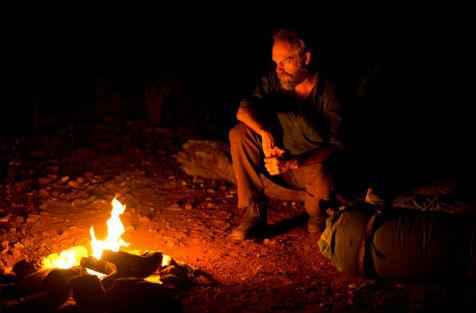Selling screen rights has long been a holy grail for authors but ‘The Turning’ turns the genre crossing around.
Robert Connolly approached 17 different directors to ask if they would like to adapt one of the short stories in Tim Winton’s collection The Turning. Early on his idea was to have all the different segments produced by the same crew, but this changed into each director working with the producer and production team of their own choosing.
The result was directors including Rhys Graham and Jonathan auf der Heide had little idea what the other teams were doing.
Connolly explained how he chose this particular work. ‘I read all of Tim Winton’s books as of all the Australian authors, Tim‘s work was the most familiar and real to me. The Turning was a volume I kept returning to, keeping a copy in the office and delving into it from time to time, and I decided that it was the one I wanted to adapt.’
Connolly went to Tim’s agent, Jenny Darling, and said that he wanted to option The Turning on the basis that he would do something experimental with it. At the time, there were a number of options over some of the stories in the book, so he had to wait until they expired.
Winton felt that there was a ‘lunacy’ to the request that surprised and intrigued him. ‘He couldn’t quite get his head around what we were planning to do, but the fact that it was so ‘out there’ appealed,’ explained Connolly.
Ben Ball, Publishing Director of Penguin General, Tim Winton’s publisher, says what has to be paid for the rights to a book depends on a lot of factors. ‘It’s a competitive situation,’ he told the audience at this year’s Books at MIFF session. ‘If Hollywood, the UK and Australia are all knocking on your door for the rights to a particular work, that’s one thing, but sometimes we would prefer to work with a smaller company who are going to put their hearts and souls into the project to get it done.’
For the publisher the economic benefit is for the film to be actually made so that it generates more book sales. Penguin is gearing up to publish an ebook version of The Turning to coincide with the film release. ‘We like to see the book as part of marketing for the film, so we will get it out slightly ahead of the film, but there is a cross promotion between the book and the film,’ said Ball.
For the 17 directors of The Turning the brief was to make a personal response to the work instead of trying to slavishly represent it on the screen.
‘Each of the stories are quite staggering on their own,’ said Rhys Graham. He chose Small Mercies, which he described as ‘massively muscular’ and had so many ways of accessing it in a filmic sense.’It’s about people trying to find connections and exploring the repercussions of grief.’
Jonathan auf der Heide was inspired to hear from Robert Connolly, as he had read his White Paper on the industry some years earlier, and was intrigued by the way he was approaching the adaptation of The Turning. For him, the landscape was an important element in the short story he chose to adapt, and it had similar theme to his feature Van Diemen’s Land. ‘In both, the landscape represents what’s going on with the main character.’
Asked if he felt ‘weighed down’ by the challenge of adapting Tim Winton, auf der Heide said, ‘The book is so beautifully written and detailed and authentic that it was an exciting opportunity. And you know that if it’s Tim Winton everyone will be watching what you do, but as a filmmaker that’s what you want – an audience waiting and ready to see it.’
Graham admitted that he found it daunting initially, and said there was a section of prose at the beginning of his short story that he liked the most and wanted to incorporate somehow, until he realised it was impossible.
Publisher Ball echoed that thought. ‘You have to recognise that it’s a film, which is a whole other experience. Once you form a bond of trust with the people doing the adaptation, you have to let them do it.’





